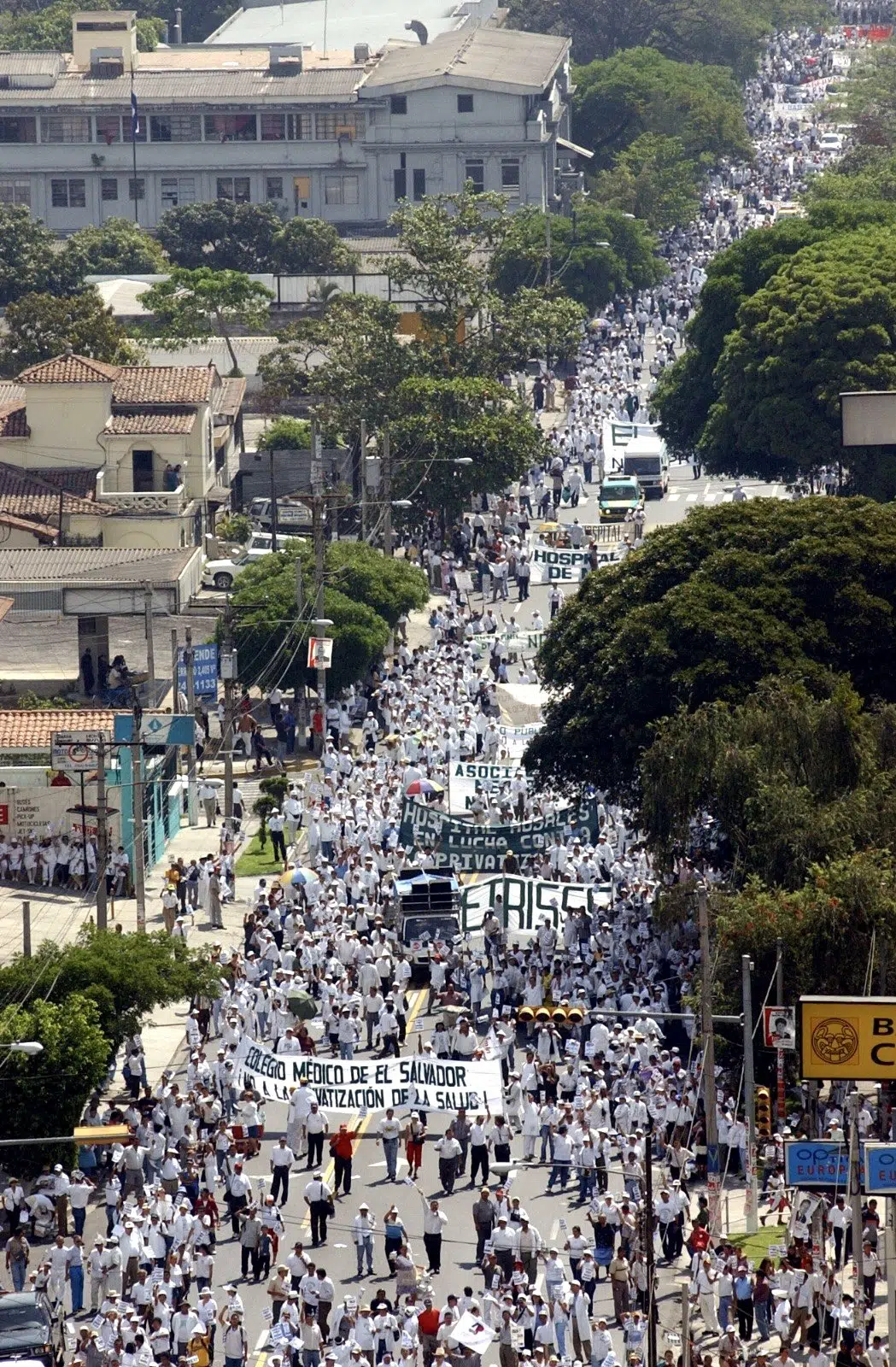The Washington Office on Latin America (WOLA) has requested that the United States impose additional individual sanctions on Salvadoran officials under the Magnitsky Act. This call follows a recent visit alongside Congressman Jim McGovern, during which they observed ongoing human rights violations under the state of exception.
“Given credible evidence of serious human rights violations and high levels of corruption, the U.S. government should continue considering individual sanctions under the Global Magnitsky Human Rights Accountability Act against officials within the justice system,” the organization stated in a web communiqué released on December 4.
WOLA notes that “only” six Salvadorans have so far faced sanctions using this legal mechanism, which, when applied, revokes their U.S. visas and freezes all their assets held in the United States.
The sanctioned individuals are the Director of Penal Centers, Osiris Luna Meza, and his mother, Yanira Meza Olivares; the Director of Social Fabric Reconstruction, Carlos Marroquín; President Nayib Bukele’s Chief of Staff, Carolina Recinos; the Presidency’s Legal Secretary, Conan Castro; and the Minister of Labor, Rolando Castro.
“These types of sanctions are important because they affect individuals’ finances,” adds the social research center.
Leveraging IMF Influence
WOLA also called on the United States to use its influence within the International Monetary Fund (IMF), where it holds the majority share, to demand accountability from El Salvador regarding the use of public funds. This scrutiny should be applied during negotiations over the $1.4 billion loan that the country has sought since 2021, which may be finalized this month, according to Bloomberg.
“In the negotiations between the IMF and El Salvador, the United States must use its influence as a mechanism to ensure accountability from the Salvadoran government,” the Office stated.
According to WOLA, the IMF should require the Salvadoran government to “comply with minimum international standards on judicial independence” and to guarantee transparency for organizations, journalists, and civil society to audit the loan usage.
In the same vein, WOLA urged the United States to call for the restoration of due process, the release of innocent detainees, and an end to the “harassment of journalists and civil society actors.” It also advised opposing constitutional reforms that permit arbitrary detentions “and other possible reforms.”
Public Sector Layoffs
Moreover, the Office noted that many of the recent layoffs in the public sector—especially in Health, Education, and Culture—have “not respected the labor guarantees of public servants.”
Organizations reported to WOLA that 17 union members have been imprisoned, 50 unions have been dissolved, and more than 519 union leaders have been dismissed. “Eighty of these dismissals occurred following a peaceful protest (the White March on October 19).”
The Dismissed Workers Movement (MDT) reported yesterday that the number has now risen to 135 dismissals.
WOLA pide más sanciones a funcionarios salvadoreños y usar al FMI como instancia de rendición de cuentas para El Salvador
La Oficina en Washington para Asuntos Latinoamericanos (WOLA) pidió a Estados Unidos más sanciones individuales contra funcionarios salvadoreños a través de la Ley Magnitsky, tras constatar, en una visita reciente junto al congresista Jim McGovern, la persistencia de violaciones a derechos humanos en el régimen de excepción.
“Debido a la evidencia creíble de graves violaciones a los derechos humanos y altos grados de corrupción, el gobierno de Estados Unidos debe seguir considerando sanciones individuales bajo la Global Magnitsky Human Rights Accountability Act a oficiales del sistema de justicia”, dijo la organización en un comunicado web difundido ayer, 4 de diciembre.
WOLA sopesa que “solo” se ha castigado a seis salvadoreños hasta la fecha con dicha herramienta legal, que al aplicarse cancela la visa estadounidense y congela todos los activos del sancionado en Estados Unidos.
Los sancionados son el director de Centros Penales, Osiris Luna Meza, y su madre, Yanira Meza Olivares, el director de Reconstrucción de Tejido Social, Carlos Marroquín, la jefa de Gabinete de Nayib Bukele, Carolina Recinos, el secretario jurídico de la Presidencia, Conan Castro, y el ministro de Trabajo, Rolando Castro.
“Este tipo de sanción es importante debido a que impacta la finanzas individuales”, agrega el centro de investigación social.
Aprovechar influencia del FMI
WOLA también solicitó que Estados Unidos use su influencia en el FMI, del cual es el accionista mayoritario, para pedir cuentas a El Salvador sobre el uso de fondos públicos en las reuniones para el préstamo de $1,400 millones que busca el país desde 2021, y que podría cerrarse este mes, según Bloomberg
“En las negociaciones entre el FMI y El Salvador, Estados Unidos debe utilizar su influencia como un mecanismo de rendición de cuentas al gobierno de El Salvador”, señaló la Oficina.
Según WOLA, el FMI debe pedir al Gobierno “que cumpla las normas internacionales mínimas sobre independencia judicial”, y hacer que garantice transparencia a las organizaciones, periodistas y sociedad civil para auditar los préstamos.
De igual modo, instó a que Estados Unidos pida el restablecimiento del debido proceso, la liberación de inocentes capturados y el fin al “hostigamiento a periodistas y actores de la sociedad civil”, además de oponerse a las reformas constitucionales que permiten detenciones arbitrarias “y otras posibles reformas”.
Despidos en el sector público
Además, la Oficina ha observado como muchos de los despidos recientes en el sector público, sobre todo de Salud, Educación y Cultura, “no han respetado las garantías laborales de los servidores públicos”.
Las organizaciones brindaron un balance a WOLA de 17 sindicalistas presos, 50 sindicatos disueltos y más de 519 líderes sindicales despedidos, “80 de ellos después de una manifestación pacífica (marcha blanca del 19 de octubre)”.
El Movimiento de Trabajadores Despedidos (MDT) reportó ayer que la cifra ya escaló a las 135 remociones.

